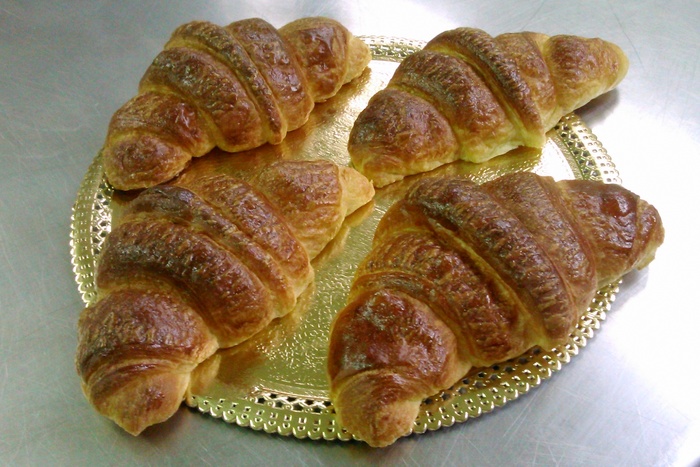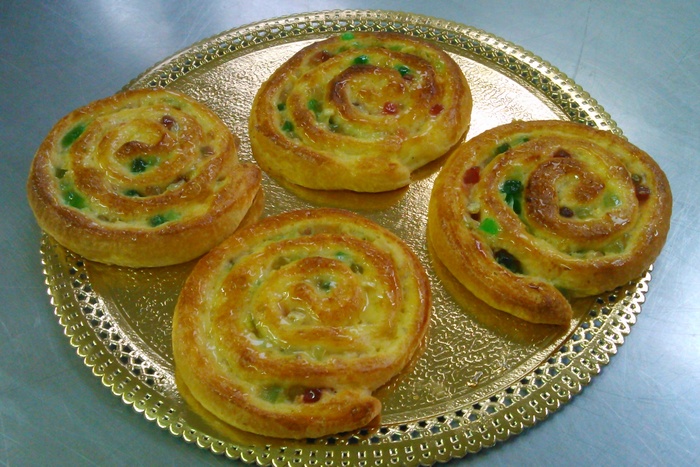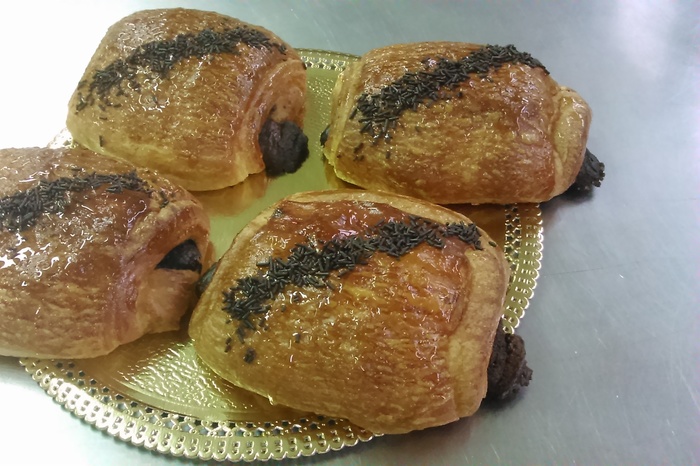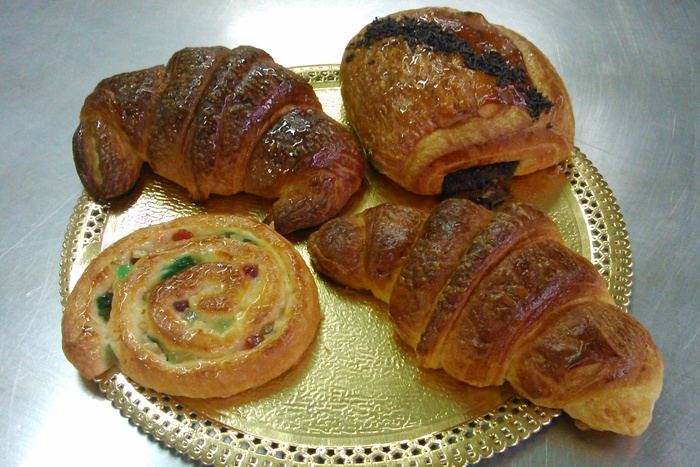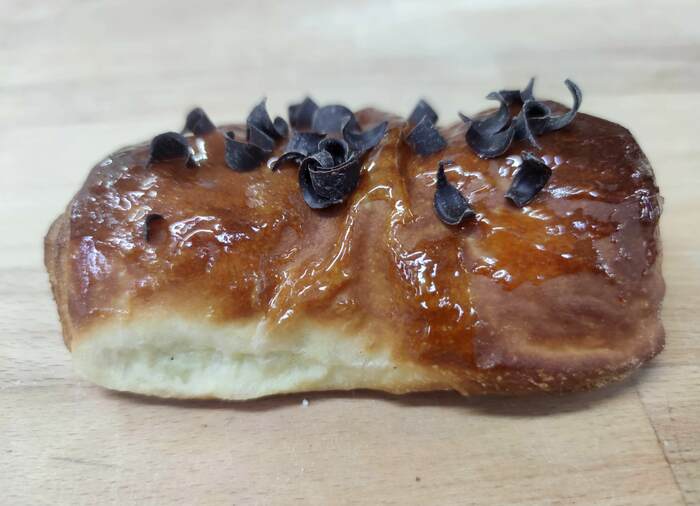Puff pastry: Croissant, pain au chocolat, etc.
120 min
Type of dish:
Bread and pastries
Temperature:
Room temperature
Seasonal period:
All year
Allergens:
Ingredients for 5 portions
Calculate portions
Strong flour
0.104 kg
Plain flour
0.104 kg
Water
0.083 l
Table salt
3.125 g
Flour enhancer
2.083 g
Yeast
10.417 g
Powdered milk
8.333 g
Butter
0.008 kg
Margarine puff pastry
0.125 kg
Elaboration
Kneading time: 13´/ 15´
Temperature of the dough: 25 ºC.
1ª Fermentation of the dough without dividing:
2ª Fermentation of a piece of the divided dough: 10´
3ª Fermentation of a formed piece: 1h 30’
Baking time: 12´
Temperature of the oven: 220 ºC
METHOD
- Knead everything together all until obtaining a fine and elastic dough.
- Divide into pieces of 1 Kg and make balls.
- Add to each piece 300 g. of margarine for croissants or puff pastry.
- Turn round three times, with a rest of 15' between turns.
- Stretch the pieces until reaching the desired thickness and weight per croissant of +/- 135 g.
- Cut the pieces of dough into a triangular shape with a croissant rolling pin, or with a knife.
- Roll the croissants trying to leave the vertex of the triangle under the rest of the rolled dough.
- Place the pieces on a baking sheet taking care to leave space so they can ferment without touching each other.
- Ferment the croissant in the fridge at 28 ºC and 75% humidity.
- Paint them with egg and cook without steam and with the oven's kiln open.
- In the elaboration of the pain au chocolate make a rectangle of about 10/12 cm long and 5/6 cm width and fill it with chocolate.
- Once both versions are cold paint with frutgel or a dense syrup to glaze them.
- Unless the croissants are intended for a filling in which case they do not need to be glazed.
Notes
- The croissant is made from a fermented puff pastry. The most noticeable difference between the different types of croissant is found in its sugar content.
- The less sweet ones are used for salty and savoury fillings, and the sweetest for breakfast.
- The previous formula is between both types, so it is suitable for both types of sweet and savoury preparation.
Nutritional information (1 portion)
Energy
405.36
kcal
Carbohydrates
41.16
g
Proteins
6.37
g
Lipids
23.45
g
Sugars
7.22
g
Salt (Sodium)
465.4
mg
Folic acid
46.07
ug
Vitamin C
0.09
g
Vitamin A
32.64
ug
Zinc
0.56
mg
Iron
0.83
mg
Calcium
29.88
mg
Cholesterol
63.29
mg
Polyunsaturated fatty acids
9.81
g
Monounsaturated fatty acids
6.16
g
Saturates
6.62
g
Fiber
2.01
g
The data is merely a guide and should not be used for medical purposes. Those responsible for the web disclaims any responsibility.
-
Type of dish
- Beers
- Cocktails
- Breakfasts and brunch
- Burguers
- Juices, milkshakes and beverages
- Shellfish
- Bread and pastries
- Pizzas, patty
- Dessert
- Pasta
- Sándwich
- Pastries
- Finger foods
- Ice creams and sorbets
- Legumes
- Salads
- Eggs
- Patty
- liqueur
- Harvard plate
- Main course
- Meats
- Fish
- Birds
- Vegetables
- Soups and creams
- Rices
- Coffee, chocolate and infusion
- Cheeses
- Appetizers and canapes
- Temperature
- Cuisine type
- Additional culinary preparation
- Conservation technique
- Seasonal recipes
-
- Aromatic herbs
- Beverages
- Big game hunt
- Bread and pastries
- Canned goods and pickles
- Cereals
- Condiments, spices and additives
- Cooked, salted, preserved and cold meats
- Dried fruits and nuts
- Dry pulses
- Edible oils and vinegars
- Eggs and derivatives
- Feathered game hunt
- Fish cuts
- Fishes
- Insects
- Kitchen and bakery tecniques
- Kitchen and bakery utensils
- Meat cuts
- Meats
- Milk, cream and derivatives
- Mushrooms
- Offal
- Pasta, rice, flour and derivatives
- Poultry
- Seafood
- Service techniques
- Service utensils
- Vegetables cuts
- Vegetables, fruits, tubers and seaweed

